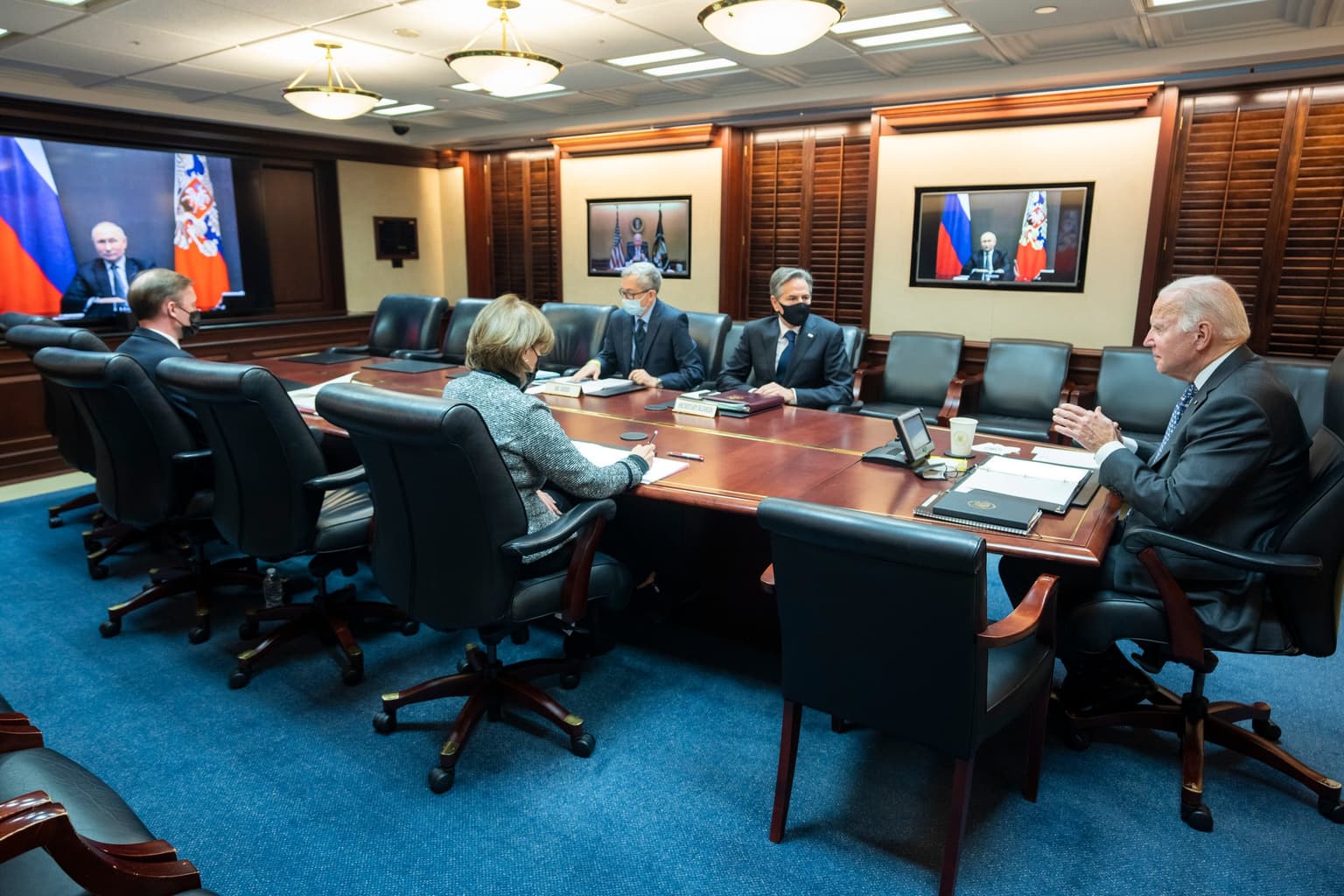What we know about Biden-Putin call about looming invasion of Ukraine

The Dec. 7 video call between U.S. President Joe Biden and Russian President Vladimir Putin, was anticipated as a likely turning point for the looming threat of a large-scale Russian invasion of Ukraine.
The talks concluded without definitive resolutions or commitments from either side.
Biden warned that if Russia invades Ukraine, it will trigger harsh economic consequences and the repositioning of NATO troops in Europe.
Biden's administration said there was no "finger-wagging" towards Putin. Instead, America made it clear where it stands on the issue of Ukraine's sovereignty and territorial integrity, Jake Sullivan, a U.S. national security adviser, told journalists after the presidential video conference ended.
"I will look you in the eye and tell you, as President Biden looked President Putin in the eye and told him today that things we did not do in 2014, we are prepared to do now," Sullivan said, referring to Russia's initial invasion and occupation of part of Ukraine seven years ago.
According to the Kremlin, Putin told Biden that NATO's buildup in the region threatens Russia and sought a guarantee ruling out NATO's eastward expansion. According to Sullivan, the Biden administration said that it will provide no such guarantee.
"I will tell you clearly and directly he made no such commitments or concessions. He stands by the proposition that countries should be able to freely choose who they associate with," Sullivan told reporters.
Commenting on the conference, Putin stated that the Kremlin and the White House would create a structure to discuss NATO's expansion. He said that Russia will prepare its positions and submit them to the U.S. within a week.
Putin said that while all sides can choose how to provide for their security, they should do so without threatening Russia.
While the White House gave few details about the nature of the consequences it's preparing, U.S. media outlets reported that these may include blocking Russian companies from global capital markets, targeted financial penalties, the shutdown of the Nord Stream 2 gas pipeline project, and even the disconnection of Russia from the SWIFT international banking transaction system.
Speaking at a joint press briefing with Croatian Prime Minister Andrej Plenkovic, President Volodymyr Zelensky took a positive view of the talks between Biden and Putin.
"The U.S. has always supported Ukraine and its independence," Zelensky said. "The most important thing that we see is that President Biden has a personal reaction to and a personal role in regulating the war in the east."
Zelensky will speak to Biden directly on Dec. 9.
Immediately after his conversation with Putin concluded, Biden spoke with the leaders of Germany, France, Italy, and the U.K. The U.S. has stated that cooperation with its European allies is crucial and that they are discussing punitive measures against Russia.
The halting of Nord Stream 2 will possibly be one of the most significant measures. The Nord Stream 2 is Kremlin's gas pipeline that goes from Russia to Germany bypassing Ukraine. If launched, it might deprive Ukraine of up to $2 billion of annual transit revenues and a deterrent against further Russian aggression.
Victoria Nuland, a top U.S. state department official, told the U.S. Senate that the administration has expectations that the pipeline will be shut down if Russia takes aggressive actions against Ukraine. No official guarantees or statements have been made by Germany.
Speaking to the Senate Foreign Relations Committee, Nuland said that much of what Putin is doing comes out of his "2014 playbook, but this time it is much larger and on a much more lethal scale."
"So despite our uncertainty about exact intentions and timing, we must prepare with our allies and partners for all contingencies, even as we push Putin to reverse course."
According to Ukrainian intelligence, as of Nov. 20, Russia had deployed nearly 100,000 troops to the Ukrainian border and the occupied territories. According to Ukraine’s Defense Ministry, Russia started bringing more heavy weapons to Ukraine’s border on Dec. 7. Western intelligence agencies believe that Russia might launch a large-scale invasion of Ukraine in late January or early February.











